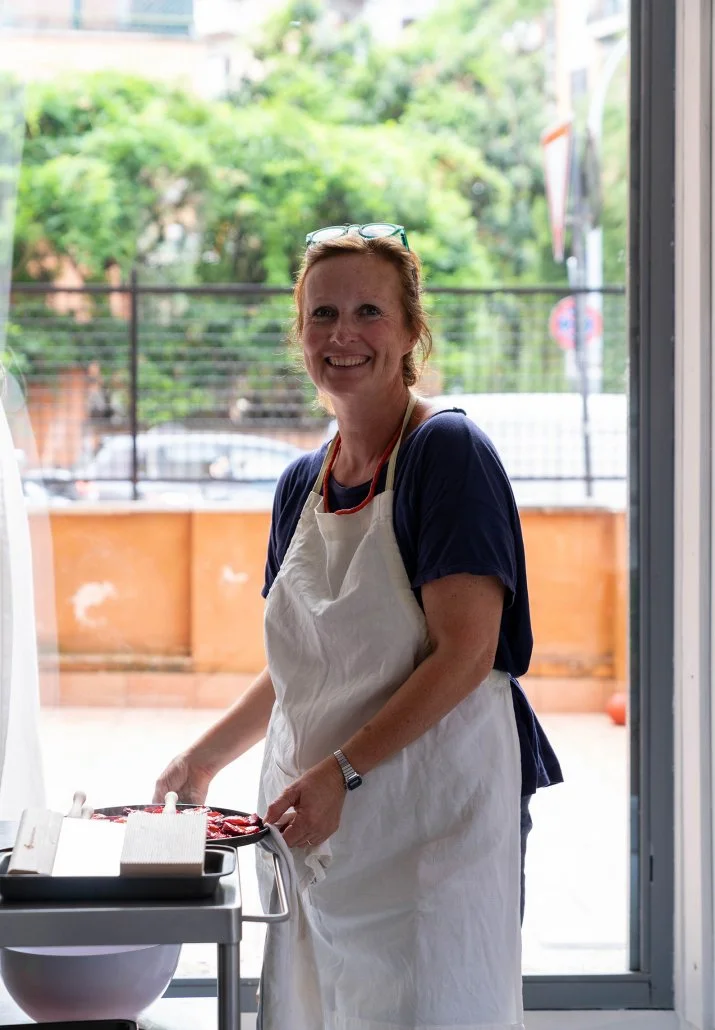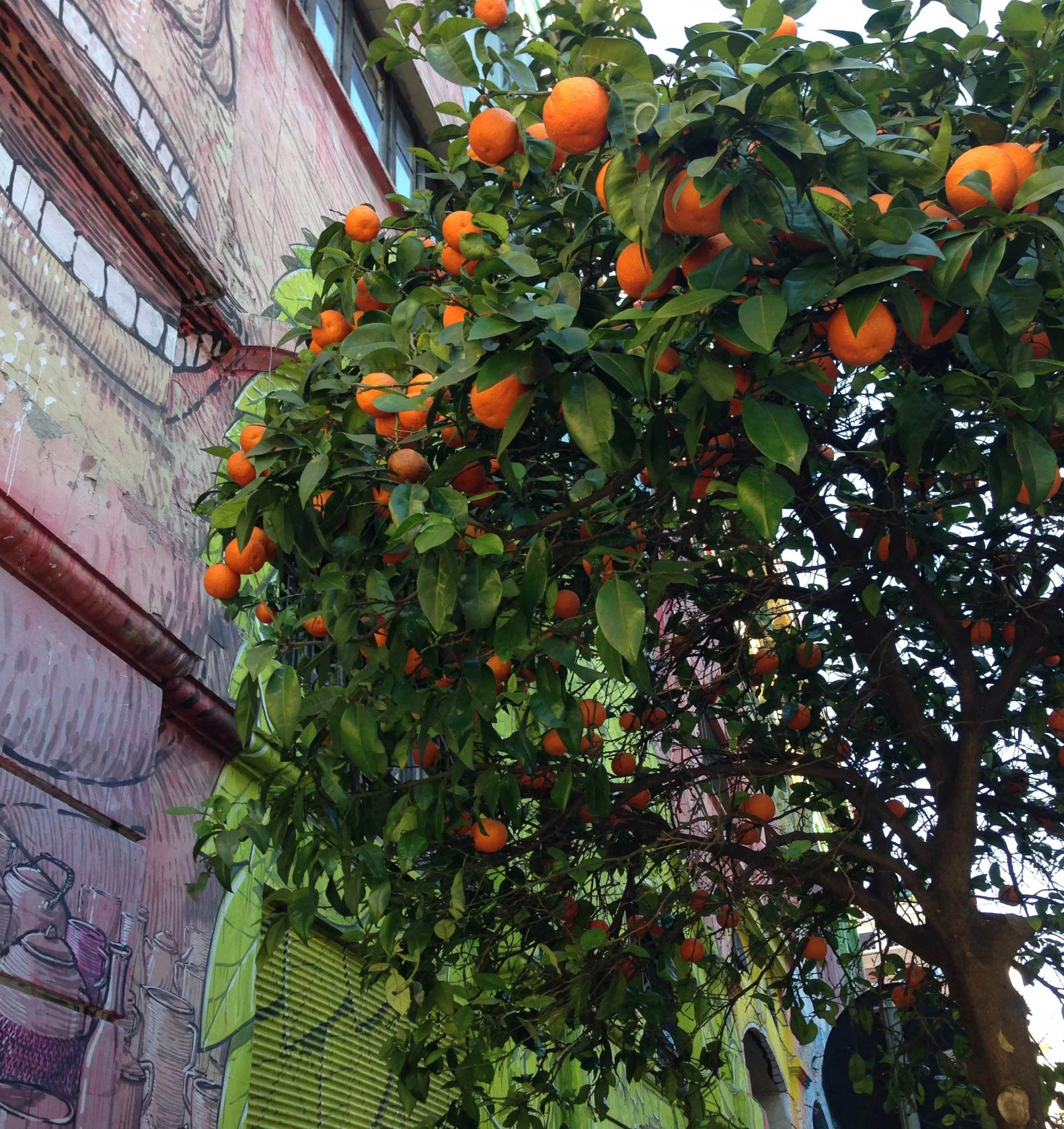The Culinary Passport - S3 EP5: Alice Adams Carosi - Rome
/Alice Adams Carosi
Alice Adams Carosi made her first trip to Rome in September 2003. It was a visit that changed her life.
She was with her brother and was impressed that he spoke some Italian, so as soon as she returned home to Melbourne she enrolled in language classes at the Insitito di Cultural Italiana.
Two years later after selling the catering business she owned with a friend in St Kilda she returned to the eternal city which has been home ever since.
In The Culinary Passport series we’ve so far talked mostly to male chefs but Alice is a cook.
“Chefs have been trained and have been through apprenticeships and they really know how to cover all the basics but cooks have more limited experience”, she says.
“That’s not to say that we’re not good at what we do as well but I couldn’t step into a kitchen and cook to orders. But if you ask me to do a catering job I have all the facts and figures in my head about how to work out the quantities for numbers and the logistics which are involved in catering which is quite a different kettle of fish”.
Much of this knowledge was gained when Alice worked in Melbourne teaming up with fellow cook Sarah Wilson to open Pumpkin Lane Kitchen in St Kilda.
“Sarah and I met through some mutual friends and she was doing the night markets at the Queen Victoria Market and through her I also got a stand,
“Doing the markets we decided we needed a kitchen so we rented a fantastic space at the back of a florists which backed onto Pumpkin Lane which is why we called it Pumpkin Lane Kitchen”.
All roads lead to Rome
When she moved to Rome in 2005 she didn’t consider cooking at first because she didn’t speak the language well enough so she started teaching English and doing translations..
Along the way she met Leo, got married, and in 2008 the couple welcomed son Alberto followed by daughter Emma in 2010.
“After the children were born I decided I wanted to go back to working in food full time and food styling seemed like a good place to get involved in the culinary landscape in Rome”.
In 2015 along with food photographer Marie Sjoberg she set up Latteria Studio .
Latteria Stuio
“Most of the photography and media food work in Italy is done in Milan but slowly we managed to attract business.
“It was a sunny spot which we also used as a teaching space and as a venue for visiting cooks with recipes they wanted to share”.
The Covid pandemic lead to the eventual closure of Latteria mark one in July 2020, but she still felt there was a place for this type of open kitchen in the city so in 2024 the new Latteria studio opened.
The new kitchen in Monteverde Nuovo near the San Giovanni di Dio Market was for recipe testing, food photography, film and video projects and cooking workshops.
It was bigger than its predecessor with a simple but functional kitchen and with everything needed for food photography including a collection of Italian ceramics, linens and flea market finds, plus the right pieces of cutlery for every occasion.
“The new area also had a lovely little courtyard where I could grow my herbs but in hindsight it probably wasn't the right space”, she says.
“It was going quite well but not quite well enough so I decided the overall balance of the studio was not working so I would close it."
Foraging a new culinary direction
Alice is now reassessing her next career moves including deciding how to proceed with her own cookbook about the markets of Rome.
Most of the work had been done including all the photography including using pictures pulled from archives but she was not completely happy with the way it was being put together so put the project on hold for the time being.
Her change in focus has also given her the chance to pursue another of her passions — foraging.
“A friend introduced me to this organisation called Urban Fruit many years ago”, she says,
"I went to a marmalade making lesson and that’s what got me started.
“When you pick oranges from the streets of Rome you get quite a lot of strange looks with people telling you they are bitter but that’s why they are so good.”
Foraging has pointed Alice in another direction, one which she is very passionate about.
Italy is famous as a place where recipes are handed down through the generations but just like in Australia and elsewhere many young people eat a lot of junk food which can lead to health complications later in life.
Among the many projects she’s involved in is Slow Food Roma and teaching slow food cooking to school children.
“I try as much as possible to introduce fresh vegetables to the lessons because most children like uncooked vegetables.
“They get to realise that they really like a couple of slices of cucumber and that’s very powerful”.
The project is also aimed at helping to address the problem of food wastage.
“Food waste is huge in Italy just as it is in every country around the world.
“I also do a lot of work with migrant communities because people here have realised that whilst it’s important to protect Italian food it’s also essential to value traditional dishes from the multi cultural landscape which now makes up Italian society.









